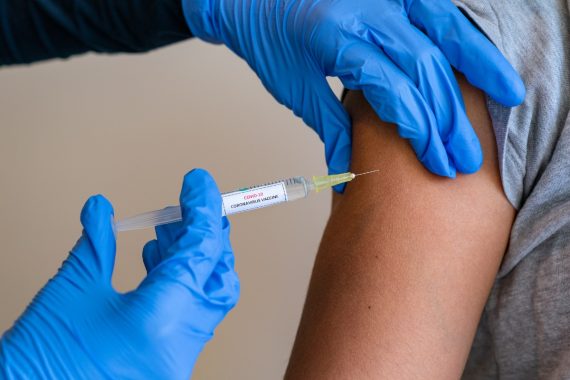GPs and consultants need to provide letters confirming the eligibility of their severely immunosuppressed patients for Covid booster jabs, NHS England has said.
A slide presented at NHS England’s GP webinar last week reiterated that online booster bookings have opened for the cohort but said their doctor needs to confirm eligibility and ‘optimal timing’.
The slide said that the national booking system ‘has now been updated to allow severely immunosuppressed people to book their booster appointments (their fourth dose) from Monday 31 January’.
‘However, they still require a letter from their GP or consultant to confirm their eligibility and the optimal timing for receipt of that dose,’ it added.
And it said that GPs should ‘continue to contact your patients to confirm their eligibility for a booster’.
Speaking at the webinar, NHS England Covid vaccine programme deputy director of operations and delivery Denise Tyrell said the letter can ‘either’ be the ‘letter they took for their third dose or a letter for the fourth dose saying that they’re eligible and their optimal timing’.
However, in a written Q&A section of the webinar, an NHS England moderator said that the requirement had been ‘removed’ for the third primary dose.
They said: ‘The letter for the booster (fourth dose) is required because of the JCVI guidance on the requirement of taking into account the optimal timing of the booster dose. This requirement was removed for the third primary course dose, hence [they were] able to use other evidence.’
A delegate had asked: ‘[The] immunosuppressed were allowed to access [the] third dose in [a] walk-in if they had evidence e/g medication demonstrating [they] met criteria.
‘Why can’t this evidence be used for boosters? [It is] additional work for GPs to do letters.’
GPs have spoken out in criticism of the requirement.
Previously, trusts were told they would be responsible for referring their eligible immunosuppressed patients for third primary doses and boosters.
In a letter sent to trusts last month – before the NBS opened to the cohort – NHS England said trusts should vaccinate them ‘within their hospital hub’ or ‘book the patient a vaccination’ at an alternative site, but that those ‘with a referral letter’ could attend walk-in clinics.
The letter said that trusts should ask lead specialists to write to all eligible patients inviting them for a booster dose.
However, an accompanying template referral letter suggested that GPs too would have a role in advising the ‘optimal timing’ for the additional jab.
It said: ‘For a few people, the timing of their booster may need to be determined considering the therapy they are receiving. [GP/consultant] to advise here about optimal timing, and to please select the relevant option below].’
A patient FAQ section in the template letter added: ‘Ideally you will need a referral letter from your GP or specialist. If you don’t have a specific letter directing you to receive a third primary dose or booster, you may still be able to receive these following a clinical conversation and if you are able to provide evidence of your condition or therapy.
‘If you don’t have a specific referral letter that describes your condition, you can present evidence such as: a hospital letter that describes your condition, or the medication you were prescribed with, at the time of your first and/or second dose; a prescription copy or a medication box with your name and a date on it.’
Last week, NHS England announced that the online booking service had opened for severely immunosuppressed people aged 16 and over, who are eligible for a fourth jab at least three months on from their three-dose primary course and can book an appointment a month in advance.
It said that immunosuppressed adults who are eligible for a fourth dose can also access this at a walk-in vaccination clinic, with the ‘majority’ of fourth doses administered through hospital consultants and GPs.
NHS England also recently set out that the £10 supplementary payment for jabs delivered to the cohort will be extended until 31 March 2022 ‘in recognition of the need to re-run searches to identify those eligible’ and maintain up-to-date lists of eligible patients.
Pulse October survey
Take our July 2025 survey to potentially win £1.000 worth of tokens













I don’t have any paper or printer ink. Not centrally supplied, nor covered adequately. Like the toilet roll and toilet duck.
er No!
Another cluster f**k to add to a long list.
If this is the same lot pf patients who were ‘shielding’ at the very start of all this, the code should be already on the computer for NHS to access? Why do we need to provide a letter?
Amazing how we are so often ‘ideally placed’ when others can’t be arsed.